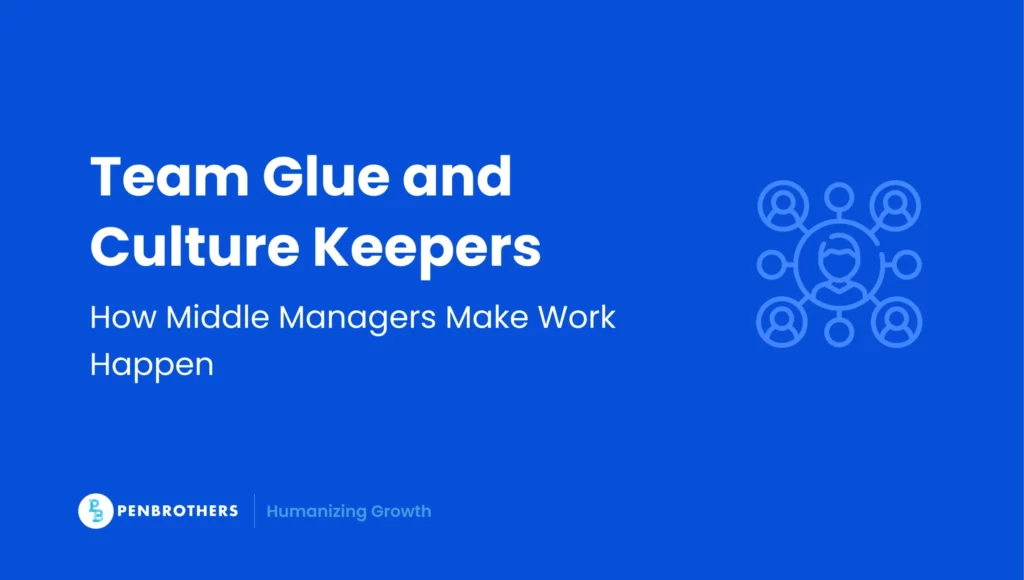Middle managers are often described as the backbone of an organization, yet their role is frequently misunderstood or overlooked. In the age of hybrid work, flattened hierarchies, and AI-powered decision-making, the relevance of middle managers has come into question. But rather than becoming obsolete, their role is evolving. This article explores who middle managers are, why they remain strategically important in 2025, and how their contributions drive results in modern organizations.
The Strategic Value of Middle Managers in Remote Teams
Middle managers are no longer just task overseers. In distributed environments, they act as the cultural glue and operational nerve center. Their importance lies in their ability to:
- Maintain alignment between leadership and teams across locations
- Reinforce company culture and engagement in virtual settings
- Enable quick decision-making closer to the ground
- Translate abstract strategies into executable plans
Without middle managers, remote organizations risk falling into silos, communication breakdowns, and unclear accountability.
Key Responsibilities of a Middle Manager
Middle managers wear many hats, particularly in hybrid or remote environments. Their key duties often include:
- Communicating company vision and goals to frontline staff
- Monitoring and improving team performance
- Coaching and developing team members
- Facilitating cross-team collaboration
- Identifying operational gaps and solving problems proactively
Remote-specific responsibilities:
- Navigating asynchronous communication
- Building trust without face-to-face contact
- Balancing flexibility with accountability
Common Misconceptions About Middle Managers
Despite their value, middle managers are sometimes misunderstood. Common myths include:
- “They just pass messages between top and bottom.” In reality, they interpret, filter, and apply leadership direction.
- “They’re not real leaders.” Many of the most influential leaders operate in the middle, driving culture and execution.
- “AI will replace them.” While automation handles repetitive tasks, human judgment and emotional intelligence remain crucial.
Challenges Middle Managers Face (And How to Fix Them)
Being a middle manager isn’t easy. Many feel caught between conflicting demands.
Top challenges include:
- Burnout from managing up and down simultaneously
- Pressure to deliver results without full authority
- Ambiguity in roles and expectations
- Lack of access to leadership development programs
Solutions:
- Empower middle managers with clear decision-making frameworks
- Provide coaching and peer learning groups
- Foster psychological safety and regular check-ins
Career Growth for Middle Managers: A Crucial Leadership Pipeline
Middle managers often serve as the company’s next generation of senior leaders. Investing in their growth means investing in the organization’s future.
Career development strategies:
- Provide exposure to cross-functional projects
- Offer lateral or stretch assignments to build skills
- Use mentorship to fast-track leadership readiness
Too often, middle managers feel “stuck.” Structured career pathways can change that and improve retention.
Tools and Tech Stack That Empower Middle Managers
Equipping middle managers with the right tools can boost productivity and morale.
Recommended tools:
- Project management: Zoho, Asana, Trello, Jira
- Performance & engagement: Lattice, 15Five, CultureAmp
- Communication: Slack, Loom, Zoom, Notion
- Development & coaching: BetterUp, Plumm, Torch
These tools help managers stay aligned, provide real-time feedback, and support employee development across distances.
What Great Companies Do to Support Middle Managers
Forward-thinking organizations recognize the value of strong middle management. Here’s what they do differently:
- Offer continuous leadership training
- Create communities of practice and peer coaching
- Set clear goals and decision boundaries
- Recognize and reward middle manager impact
Case in point: Companies with empowered middle managers often see better retention, faster execution, and stronger cultures. See how Wil, a data manager helps a UK-based startup grow:
Middle Management in the Future of Work
Far from being outdated, the middle management role is transforming into a strategic linchpin for agility and resilience. In the future:
- Middle managers will lead cross-disciplinary teams
- They’ll act as translators between AI-driven insights and human decisions
- Adaptive leadership will be their most prized skill
Companies that fail to invest in this tier risk losing institutional knowledge, team cohesion, and operational agility.
Conclusion: The Middle Manager Is the New Strategic MVP
In 2025, middle managers are not just necessary. They’re invaluable. As remote work reshapes the corporate world, these professionals serve as communicators, leaders, and culture carriers. Organizations that support and invest in their middle tier will thrive. Now is the time to recognize the strategic power of middle managers and build the systems they need to succeed.
Whether you’re a middle manager or a hiring manager who is building your team, you can consult with HR experts for a customized solution to reach your business goals.






